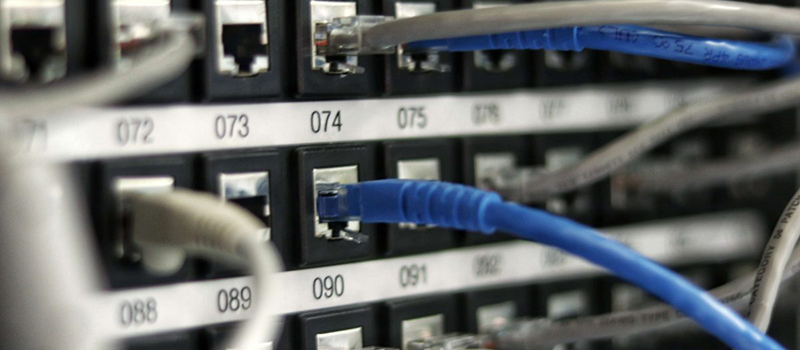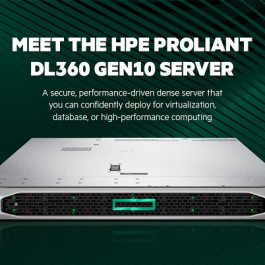
Servers provide various services and perform important tasks and are key components in corporate networks. Today, both large and small businesses need servers. But how to choose the right server? The following will find out for you by discussing your needs and the different types of servers.
6 questions to ask yourself when choosing your next server
Server selection is always complicated. Before you start choosing a server, you need to think twice about your business needs. Some questions you can ask yourself first.
- What type of applications will you be running and how many?
The server you choose depends entirely on the application you will be running. Applications tend to be very robust. If you don’t have the right hardware to support your application, you may experience delays, bugs, or worse: downtime. Always check with each application’s OEM for hardware requirements you may need. For companies with many applications (ie files, email, CRM and databases) you will need more powerful tower, rack or blade servers.
- What type of processor do you need and how many?
In most cases, applications require a specific type of processor, cores, and speed. You don’t want to spend money on things you don’t need. Worse yet, you don’t want to get a processor that doesn’t provide a balanced server because it can create a bottleneck for you.
- What type of switch ports are required to support the server, and how many?
Customers sometimes order too many servers, only to find that they don’t have enough ports on their switches to plug them into. Remember to count the empty ports in your existing network to see if you need to buy another switch to support the new server deployment. Verify that there are enough ports on your switch to accommodate and support the number of servers you plan to deploy.
- How much capacity do you need?
Once you know what types of workloads you will be running and how many users your application will serve, you can calculate the capacity you need. There are two aspects to consider: What is the required capacity for all types of services? What is the future capacity in 2 or 3 years? To get the answer to the first question, calculate the capacity occupied by the operating system, application installations, databases, mail, etc. Multiply the capacity by the expected number of users and forecast 2 or 3 years of growth. Finally, in the case of data backups and file operations, you still need to multiply this value by a factor of about 1.5.
- How much power do you really need?
Finally, calculate how much power your server needs so you can get enough power. Power consumption in any environment is a hot topic. View the power consumption of each component and choose based on your environmental needs.
- What is your budget?
Your server should meet your network needs, but it will also be affected by your budget. Generally, the more complex the tasks your business requires, the more expensive the server will be. Furthermore, you should not only consider current business tasks, but also long-term task requirements. Compare the pros and cons of buying a cheap server or an expensive one.
Key Considerations
After answering the questions, there are some major considerations: local or cloud, form factor, CPU (processor), RAM (memory), and hard disk, also known as storage.
On-site or Cloud
The most notable differences between on-premises and cloud servers are cost and management. For SMBs, on-site servers seem to be more cost-effective because the devices are stored and managed in your own space. However, it requires dedicated IT support and is prone to data loss in disaster situations. For businesses with limited space, deploying servers in the office may not be a good idea. However, as the business expands, cloud costs also increase. If you decide to use an on-premises server, you should consider the hardware components of the server.
Server Configuration
Server form factors can be divided into three types: rack servers, blade servers, and tower servers. Of the three server form factors, the rack server offers great flexibility because it allows multiple servers to be installed in the same bay. Efficient use of space, easy expansion with business growth, popular with enterprises. Tower servers are housed in a chassis and are ideal for small businesses due to the fewest components in their configuration.
Server CPU
The CPU, also known as the processor, is considered the brain of the server. The faster a server has a processor, the more programs the server can run and the faster it can run.
Server Memory
The answer from the app server will run and the user number will help us find the proper server RAM. If there is very little RAM in the server, the application will use virtual memory on the storage drive, which will be slower. To avoid slowing down network responsiveness, the best practice is to maximize the amount of memory.
RAM is usually between 2GB and 64GB. For everyday computing tasks like internet browsing, emailing, listening to music or watching videos, 8GB of RAM is enough. But when the server requires high RAM, consider increasing the RAM as much as possible. For businesses with smaller budgets, it is recommended that you consult an IT specialist and find out the correct RAM to operate.
Hard Drive
Choosing a server hard drive can be complicated because of many factors to consider, such as drive type (including SSD, HDD, and flash), connection type, amount of hardware, rotational latency, and support for Raid cards.
Conclusion
Before deciding which servers your company will use, it is necessary to do your research and explore the market. Make sure the server meets your needs. When you are really not sure which server is right for you, please contact us for technical support.
Want to know more, please click here: Dell Servers, HPE Servers, Huawei Servers, Server Systems,
Read More:
HPE ProLiant DL360 Gen10 Server Vs DL380 Gen10 Server
3 Advantages: Why Choose HPE ProLiant DL580 Gen10 Server
Dell T140 Server, the Best Choice For Small Business Entry-level Servers
Why is Your Wi-Fi slow? Some Reasons and Solutions
Reference:
Knowledge. 2022. How to Choose a Network Server for Your Business? | FS Community. [online]
Curvature. 2022. How to Choose a Server – 10 Things to Know | Curvature. [online]






